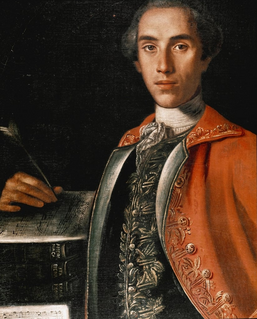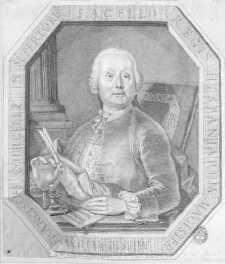Sources
- The Viking Opera Guide ed. Holden (1993)
- Del Teatro (in Italian)
Torneo notturno (Nocturnal Tournament) is an opera by the Italian composer Gian Francesco Malipiero. It was first performed at the Nationaltheater in Munich on 15 May 1931. The libretto, by the composer, is based on works by Serafino Aquilano, Francesco Sacchetti and Tuscan folk songs.
The work is made up of seven scenes or notturni linked by instrumental interludes. The titles of the notturni are:
| Role | Voice type | Premiere cast 15 May 1931 (Conductor: Karl Elmendorff) |
|---|---|---|
| Il Disperato ("The Despairing One") | tenor | E.Feuge |
| Lo Spensierato ("The Carefree One") | baritone | W.Härtl |
| Innamorato 1 (First lover) | tenor | H.Rehkemper |
| Innamorato 2 (Second lover) | baritone | A.Gerzer |
| Innamorato 3 (Third lover) | bass | J.Fornau |
| La madre (the mother) | mezzo-soprano | G.Langer |
| La figlia (the daughter) | soprano | C.Sendel |
| L'oste (the landlord) | baritone | H.Fichtmüller |
| La cortigiana (the courtesan) | soprano | A.Wagenpfeil |
| Il buffone (the buffoon) | baritone | Julius Betetto |
| Quattro giovani (four youths) | tenor | |

Francesco Cilea was an Italian composer. Today he is particularly known for his operas L'arlesiana and Adriana Lecouvreur.

Pietro Antonio Domenico Trapassi, better known by his pseudonym of Pietro Metastasio, was an Italian poet and librettist, considered the most important writer of opera seria libretti.

Leonardo Leo, more correctly Lionardo Oronzo Salvatore de Leo, was a Baroque composer.

Giacomo Antonio Perti was an Italian composer of the Baroque era. He was mainly active at Bologna, where he was Maestro di Cappella for sixty years. He was the teacher of Giuseppe Torelli and Giovanni Battista Martini.

Giuseppe Felice Romani was an Italian poet and scholar of literature and mythology who wrote many librettos for the opera composers Donizetti and Bellini. Romani was considered the finest Italian librettist between Metastasio and Boito.

Antonio Caldara was an Italian Baroque composer.

Giovanni Legrenzi was an Italian composer of opera, vocal and instrumental music, and organist, of the Baroque era. He was one of the most prominent composers in Venice in the late 17th century, and extremely influential in the development of late Baroque idioms across northern Italy.

Italian opera is both the art of opera in Italy and opera in the Italian language. Opera was born in Italy around the year 1600 and Italian opera has continued to play a dominant role in the history of the form until the present day. Many famous operas in Italian were written by foreign composers, including Handel, Gluck and Mozart. Works by native Italian composers of the 19th and early 20th centuries, such as Rossini, Bellini, Donizetti, Verdi and Puccini, are amongst the most famous operas ever written and today are performed in opera houses across the world.
The year 1709 in music involved some significant events.
Francesco Manelli (Mannelli) was a Roman Baroque composer, particularly of opera, and a theorbo player. He is most well known for his collaboration with fellow Roman composer Benedetto Ferrari in bringing commercial opera to Venice. The first two works, in 1637 and 1638, to be put on commercially in the Teatro San Cassiano were both by Manelli - his L'Andromeda and La Maga Fulminata.

Gianrico Carofiglio is a novelist and former anti-Mafia judge in the Italian city of Bari. His debut novel, Involuntary Witness, published in 2002 and translated into English in 2005 by Patrick Creagh, was published by the Bitter Lemon Press and has been adapted as the basis for a popular television series in Italy. The subsequent novels were translated by Howard Curtis and Antony Shugaar.

Francesco Balilla Pratella was an Italian composer, musicologist and essayist. One of the leading advocates of Futurism in Italian music, much of Pratella's own music betrays little obvious connection to the views espoused in the manifestos he authored.

Giacomo Domenico Mario Antonio Pasquale Giuseppe Tritto was an Italian composer, known primarily for his fifty-four operas. He was born in Altamura, and studied in Naples; among his teachers were Nicola Fago, Girolamo Abos, and Pasquale Cafaro. Amongst his pupils were the young Vincenzo Bellini around 1821, plus Ferdinando Orlandi. He died in Naples.

La Calliroe is an opera in three acts by Josef Mysliveček set to a libretto by Matteo Verazi that is based on Greek legends about the Oceanid Callirrhoe. This opera belong to the serious type in Italian language referred to as opera seria. Vocal pieces from the opera composed for the singer Luigi Marchesi in the role of Tarsile were widely copied in eighteenth-century collections of operatic arias.
Francesco Maria Bazzani or Bassani was an Italian baroque composer.
Luigi Mosca was Italian composer of operas and sacred music and a noted singing teacher. He composed eighteen operas, most of which were originally for theatres in Naples, but played throughout Italy in their day.

Elisabetta Manfredini-Guarmani was an Italian opera singer best known for having created the leading soprano roles in four of Rossini's operas, roles which he wrote specifically for her voice. She was born Antonia Elisabetta Manfredini in Bologna and was the daughter of the composer and music theorist Vincenzo Manfredini. After her stage debut in 1810 when she sang in the premiere of Stefano Pavesi's Il trionfo di Gedeone at Bologna's Teatro del Corso, she went on to perform at La Fenice, La Scala, Teatro Regio di Torino, Rome's Teatro Argentina and several other opera houses, primarily in Northern Italy. In addition to the roles she created in Rossini's operas, she also sang in the world premieres of operas by several composers who are lesser known today, including Pietro Raimondi, Simon Mayr, and Ferdinando Paër. Her last known appearance was in 1828 after which there is no further trace of her. The date and place of her death are unknown.

Francesco Corselli was an Italian composer of the pre-classical period.
Giampaolo Coral was an Italian composer.

Ottaviano Tenerani is an Italian keyboard player, conductor, musicologist. He is the leader of Il Rossignolo, an ensemble on period instruments that he founded in 1998 together with the flautist Marica Testi and the recorder and oboe player Martino Noferi.